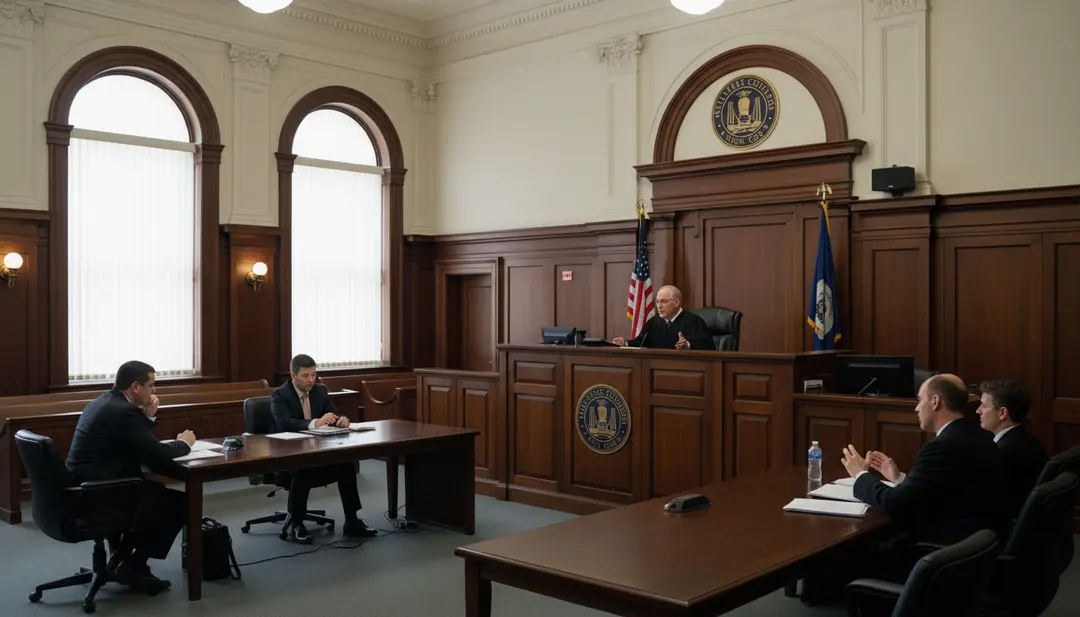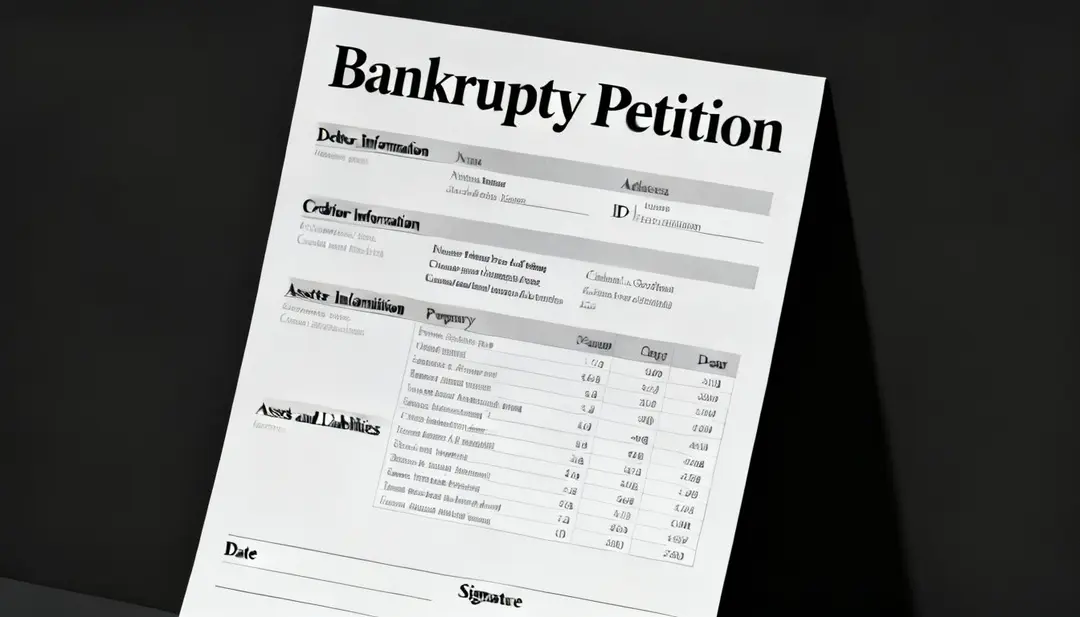Common Arizona HOA Violations: Fines for Landscaping Violations, Exterior Modifications, and More [2025 Update]
When you manage a homeowners association in Arizona, violations can be an ongoing challenge. The most common issues, like Fines for Landscaping Violations, exterior modifications without approval, noise complaints, and improper parking, often come with steep penalties. These fines are more than just a matter of policy—they protect property values and help maintain the community’s standards.
Understanding which violations are most frequent, how to issue fines, and the best way to handle compliance is essential for every board member and manager. With changes in state law and the growing complexity of community rules, it’s smart to work with an Arizona HOA Attorney, a Phoenix HOA Lawyer, or a Tucson HOA Attorney who knows the ins and outs of Arizona HOA regulations. At Halk, Oetinger, and Brown, our team provides guidance that keeps your association on track and out of trouble.
Our firm offers flat rate general counsel services—no hourly surprises—giving associations predictable legal support. From Fines for landscaping violations in Arizona HOAs to enforcement of CC&Rs, we help you enforce rules fairly and avoid costly disputes. With our experience, your community can stay compliant and address violations promptly, creating a better experience for both board members and residents.
The Importance of Enforcing HOA Rules in Arizona
Setting clear and fair rules is only half the battle for any Arizona homeowners association. The true challenge comes in enforcing those standards consistently. When you’re faced with repeat violations—such as overgrown lawns, exterior changes without approval, or improper vehicle parking—the day-to-day harmony and property values of your community depend on reliable enforcement.
Arizona law requires HOAs to uphold the CC&Rs (covenants, conditions, and restrictions) and the rules adopted by the board. When you enforce these rules thoughtfully, you send a message that everyone in your community matters equally. If your HOA doesn't address frequent issues like Fines for Landscaping Violations or repeated noise complaints, your efforts to create a safe and pleasant neighborhood can fall apart fast.
A strong enforcement process not only protects investments but ensures no homeowner feels unfairly singled out. This builds trust with residents and can reduce future conflicts. Here's why enforcement is key for every Arizona HOA board.
Protecting Property Values and Community Standards
Maintaining strict, consistent rule enforcement is one of the best tools you have to keep up appearances and, by extension, real estate values. If you let things slide—say, ignoring a rash of Fines for Landscaping Violations—other owners will notice, and standards can slip across the entire neighborhood.
- Well-enforced landscaping, parking, and architectural rules prevent a decline in curb appeal.
- Reliable enforcement assures buyers they’re investing in a well-kept, stable community.
- Ignoring violations may cause disputes between neighbors, risking an unpleasant living environment.
For more on the authority and responsibilities involved, see this Arizona HOA fines and CC&R violations resource, which offers legal context for both fines and compliance.
Ensuring Fairness and Accountability
Uniform enforcement is essential for fairness. Homeowners expect every rule to apply equally, no matter how long someone has lived in the community or their standing with the board. If one homeowner gets cited for overgrown weeds but another doesn’t, resentment and disputes quickly follow.
- Applying fines and warnings equally reduces claims of favoritism.
- Fair enforcement limits the risk of discrimination or selective rule application.
- Documenting all actions builds a paper trail—helpful if you face a challenge from a resident or legal dispute.
To see how effective enforcement transforms community life and builds board credibility, review the tips on Effective covenant enforcement for Arizona HOA boards.
Preventing Legal and Financial Risks
Failing to enforce rules can backfire, sometimes resulting in lawsuits and even regulatory penalties. Arizona statute allows for fines but expects HOAs to act within their established authority and always in compliance with due process.
- Unenforced violations may weaken the HOA’s ability to collect fines or enforce requirements later, leading to unnecessary legal actions.
- Courts often look for proof your board treated every owner fairly and consistently.
- Board inaction can create liabilities, opening the door to claims from frustrated homeowners.
By keeping enforcement strong and well-documented, you protect the HOA from becoming the target of costly legal fights. For an in-depth look at typical disputes and how to avoid them, visit this guide on Common HOA litigation issues in Arizona.
Encouraging Community Engagement
Enforcement isn’t just about punishment—it's about upholding shared values. When residents see the HOA take rules seriously, they’re more likely to participate in meetings, share concerns, and address violations themselves before they escalate.
- Residents gain confidence in board leadership when rules are enforced openly and consistently.
- Engaged communities foster better understanding of why rules exist and how they benefit everyone.
- Education around frequent issues (like Fines for Landscaping Violations) strengthens compliance and builds a sense of belonging.
If you ever doubt whether enforcing rules is worth the effort, remember: an engaged, well-governed community offers a better quality of life for everyone. Regular enforcement paired with transparent communication encourages every member to take pride in the neighborhood.
Arizona HOAs that work with a knowledgeable Arizona HOA Attorney, Phoenix HOA Lawyer, or Tucson HOA Attorney are better prepared to manage this process. Not only does effective enforcement lead to fewer violations over time, but it helps the board avoid many of the most common legal and financial pitfalls.
Top HOA Violations Arizona Boards Face
Arizona HOAs see many of the same violations year after year, with a handful of recurring issues causing the most trouble for boards and residents alike. Your ability to spot these problems early, follow due process, and apply community rules fairly makes all the difference. Below, you’ll find a breakdown of the most common violations—from landscaping to pet fines—and practical guidance for managing each with confidence.
Fines for Landscaping Violations
Landscaping is a visual signature for any Arizona community. Boards work hard to keep grass trimmed, plants healthy, and weeds at bay. Yet, violations still pop up. These often include:
- Overgrown grass and weeds
- Dead or missing plants and trees
- Failing to remove debris or maintain yards
- Unapproved changes to front yards, like rock installations or artificial turf
Communities rely on fines for landscaping violations in Arizona HOAs to keep neighborhoods looking sharp and property values protected. The process usually starts with a written warning, followed by documentation (photos, notes) for each incident. If a homeowner ignores warnings, boards move toward fines according to the CC&Rs.
Clear rules and detailed documentation are your best defenses. Without transparent processes and records, your board could face disputes or even legal trouble down the road. For a deeper look at how Arizona HOAs handle these standards and fines, check the resource on Fines for landscaping violations in Arizona HOAs.
Unapproved Exterior Modifications
Changes to a home’s exterior can create headaches if not handled by the book. Common violations include:
- Repainting in unapproved colors
- Installing additions, sheds, or pergolas without approval
- Putting up fences or changing them without permission
- Replacing roofing material or solar panels without submitting plans
Arizona HOAs use an architectural review committee or process to ensure all exterior projects meet community guidelines. Homeowners must submit plans for board or committee approval before starting work. If a resident ignores the process and makes modifications, the board may require them to restore the property or face disciplinary action.
Clear architectural guidelines make enforcement easier, and having set policies helps you treat everyone fairly. To learn how your association can address these situations and avoid future conflicts, see the detailed explanation of Rules on exterior modifications without approval.
Parking and Vehicle Restrictions
Parking headaches are nearly universal for HOAs, especially in Arizona where street space is often limited. The most common issues include:
- Storing RVs, trailers, or boats on driveways or streets
- Parking commercial vehicles overnight in residential areas
- Ignoring bans on street parking
- Homeowners using guest lots for long-term storage
Boards use a mix of signage, patrols, and resident reminders to foster compliance. Clear, well-communicated rules help you avoid claims of selective enforcement or misunderstandings. When violations persist, formal warnings and fines come into play. Collaborate with your community and consider periodic reviews of your parking policies—they may need to reflect current needs, especially as communities grow or residents’ habits evolve.
Pet Violations and Related Fines
Pets bring joy, but also challenges when it comes to HOA compliance. The most common pet-related issues include:
- Residents ignoring breed or size restrictions
- Exceeding the maximum number of pets allowed
- Letting pets off leash in common areas
- Failing to clean up after animals
Arizona HOAs need clear pet policies, covering everything from breed policies to leash requirements. When a violation occurs, boards document it and start with a warning. If repeated, fines can be issued. Always follow due process, giving residents the chance to correct their behavior.
Fair enforcement encourages buy-in and limits disputes. For a full breakdown of what your board can regulate and how fines should be handled, review the guide to Arizona HOA pet rules and fines.
By handling these top violations with a steady hand and clear communication, your board supports a thriving, attractive, and harmonious community. Teaming up with an experienced Arizona HOA Attorney, Phoenix HOA Lawyer, or Tucson HOA Attorney can help you maintain consistency and protect your association’s interests.
Legal Considerations for Enforcing Arizona HOA Fines and Violations
Enforcing fines for violations like improper landscaping or unauthorized exterior work is about more than following your HOA's rules. If you serve on an Arizona HOA board, you need to understand the legal framework and requirements that govern how these fines are issued and collected. Every step, from the first warning letter to potential legal action, must stay compliant with state laws and your own governing documents. If you miss key details or skip required steps, you put your association at risk for lawsuits, financial penalties, and loss of trust among residents.
Legal Authority and Documentation
Arizona law gives HOAs the authority to impose fines and enforce the CC&Rs. However, boards must clearly document every violation and ensure that their processes are fair and transparent. For example, when you issue a fine for landscaping violations, you should have written records:
- Date and nature of the violation
- Photographs if appropriate
- Copies of all communications with the homeowner
This documentation demonstrates that your board is consistent and reasonable. Proper records also protect you if a homeowner challenges a fine or accuses your board of selective enforcement. It’s smart to use notice templates and standardized letters to minimize errors, especially for frequent issues like landscaping and parking violations. See effective templates for Arizona HOA management for practical tools to help your board manage these tasks efficiently.
Due Process and Fair Enforcement
Arizona law requires that HOAs follow due process before fines are assessed. You can’t simply slap a penalty on a resident without warning. The process usually:
- Starts with a written warning or friendly reminder.
- Clearly describes the violation and cites the specific rule or CC&R.
- Gives the homeowner a chance to correct the problem within a set timeframe.
- Imposes the fine only if the violation remains after the deadline.
Every homeowner must receive equal treatment. Skipping steps, making exceptions for a neighbor, or jumping straight to fines without warning exposes your HOA to allegations of unfair treatment or discrimination. Lists and documented procedures help support your actions, especially in high-conflict scenarios.
Statutory Limits and Fine Amounts
When you issue fines for landscaping violations or similar issues, Arizona law sets parameters on how much you can charge and how often. Most CC&Rs and bylaws outline specific penalty structures, but you need to make sure those policies line up with state statutes. Typically, the fine for a late assessment is $15 or 10% of the amount due, whichever is greater. These amounts are meant to be reasonable and proportional to the violation. Overly aggressive fines can invite legal scrutiny, so always double-check your association’s policies against the law.
For further reading on balancing CC&R enforcement and compliance with statutes, review the impact of local regulations on Arizona HOAs to protect your board from regulatory headaches.
Appeals and Homeowner Rights
Board actions must leave room for homeowners to dispute or appeal penalties. If a resident feels a fine was wrongly imposed—for example, a fine for landscaping violations after recent storm damage—they have the right to request a hearing or submit supporting evidence. An established appeals process:
- Builds transparency and trust
- Provides a formal opportunity for both sides to present their case
- Shows that your association values fairness and resident input
The appeals process should be clearly outlined in your governing documents and explained in every fine or warning notice.
Working with Legal Counsel
If your board faces pushback or complex violations, working with an Arizona HOA Attorney can save time and money. An experienced Phoenix HOA Lawyer or Tucson HOA Attorney can help interpret your documents, guide your board through the proper penalty process, and reduce the risk of expensive mistakes. At Halk, Oetinger, and Brown, our team takes pride in offering flat rate general counsel services and industry-leading collection programs. Our work is not about billing hours, but about supporting your community’s success—especially when legal issues arise around Fines for Landscaping Violations or other common disputes.
Navigating enforcement and legal requirements takes focus and preparation, but consistent processes, clear communication, and strong legal backing make it possible to maintain high standards for your Arizona HOA.
Frequently Asked Questions About HOA Violations in Arizona
Every Arizona HOA board faces a wave of questions from residents and managers about what can trigger fines, how rules are enforced, and when to involve an attorney. If you’ve ever dealt with a complaint about weeds, unapproved construction, or noisy pets, you know the importance of clear answers and fair processes. Here, you’ll find concise explanations to the most common questions about HOA violations in Arizona, so you can manage compliance with confidence.
Can an HOA Fine Me for Weeds or Landscaping Issues?
Yes, your HOA has the authority to fine residents for landscaping violations, including weeds, dead grass, missing plants, and other yard neglect. These powers come directly from the association’s CC&Rs and Arizona statutes. Boards use these rules to maintain the community’s image and protect home values.
Before a fine is issued, the HOA must notify the homeowner, documenting both the violation and the specific rule it breaks. Good communication is key—most associations start with a friendly reminder, giving the homeowner time to fix the problem before imposing fines. Staying transparent reduces pushback and ensures compliance.
What Counts as an Unapproved Exterior Modification?
Unapproved exterior modifications include any change to the outside of your home that bypasses required HOA approval. Typical examples:
- Painting in a color not on the community’s palette
- Adding or modifying fences, sheds, patios, or permanent structures
- Installing solar panels, roofs, or window replacements without prior submission
If a homeowner skips the approval process, boards usually require the work to be reversed or brought into compliance. Ignoring the process can lead to repeated fines, legal notices, or even litigation. To stay compliant, always check your HOA’s guidelines before starting an exterior project. For a thorough review of these standards, check out this Arizona HOA laws explained page.
Are HOA Fines Capped or Limited in Arizona?
Arizona law attempts to keep HOA fines fair and in check. While CC&Rs outline most fine schedules, state statutes limit how much and how often an HOA can impose fines. For example, late fees are commonly $15 or 10% of the unpaid assessment amount, whichever is greater. Associations may not impose excessive penalties or fines that feel punitive rather than corrective.
Consulting a qualified Arizona HOA Attorney, Phoenix HOA Lawyer, or Tucson HOA Attorney can help you review your governing documents to ensure they align with the latest statutory limits and fair practices. Responsible, moderate fines encourage compliance without sparking disputes.
Can an HOA Restrict the Number or Types of Pets?
Most Arizona HOAs set specific rules about pets. These may limit the number of animals in a home, ban certain breeds, or require leashes in common areas. Other common restrictions include weight limits and minimum age for pets.
The goal is to protect the community from potential disturbances or safety concerns. When applied evenly, pet restrictions avoid conflicts and foster a peaceful neighborhood. Make sure your HOA’s policies are clearly included in the rules and provided to every homeowner at move-in.
What Steps Must an HOA Take Before Issuing a Fine?
Arizona law and most CC&Rs require a formal process before any fine is assessed:
- Notify the homeowner in writing of the specific violation.
- Explain which rule or covenant has been broken.
- Provide a reasonable period to fix the problem.
- Document all communications, warnings, and evidence.
- Offer the owner a chance for a hearing, if requested.
Skipping steps or being inconsistent opens the door to legal challenges and claims of unfair treatment. For a proven, step-by-step process that can lower your risk of litigation, see how Covenant Enforcement Services can help guide your board.
When Should You Contact an Arizona HOA Attorney?
It’s wise to reach out to an attorney when violations seem unclear, communication breaks down, or disputes escalate beyond simple fines. Examples include:
- Homeowners repeatedly ignore or contest Fines for Landscaping Violations.
- The board faces threats of litigation or legal complaints.
- Ambiguous CC&R language creates confusion on fines or enforcement.
- Special cases arise, such as reasonable accommodation requests or unique property modifications.
A reliable Arizona HOA Attorney, Phoenix HOA Lawyer, or Tucson HOA Attorney can help you avoid mistakes, minimize risks, and resolve issues promptly. When you work with Halk, Oetinger, and Brown, you get flat rate support and experienced legal guidance on every phase of enforcement, from warnings to hearings, giving your association peace of mind.
By staying informed and seeking help when needed, you can uphold your standards, follow the law, and keep your Arizona community thriving.
Conclusion
Clear, evenhanded enforcement of common violations such as Fines for Landscaping Violations forms the backbone of a successful Arizona homeowners association. When you apply the rules and document each step, you not only protect your community’s property values but also build trust among residents. Knowing when to consult an Arizona HOA Attorney, Phoenix HOA Lawyer, or Tucson HOA Attorney can mean the difference between conflict and resolution—especially as rules and statutes continue to change.
Partnering with a firm that delivers flat rate general counsel, like Halk, Oetinger, and Brown, gives your HOA the support it needs without surprises. With experience in everything from assessment collection to governance, you gain a true advantage and can keep complex issues from becoming major disputes. If you want to further strengthen your board’s effectiveness, explore essential HOA resources in Arizona for practical guidance that saves time and promotes compliance.
Thank you for taking the steps to support a fair, well-managed community. If you have unique questions or challenging violations, reach out to learn how expert advice can help your association thrive.













